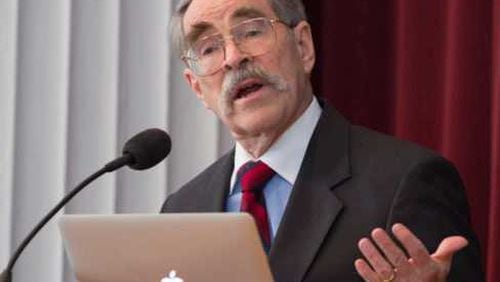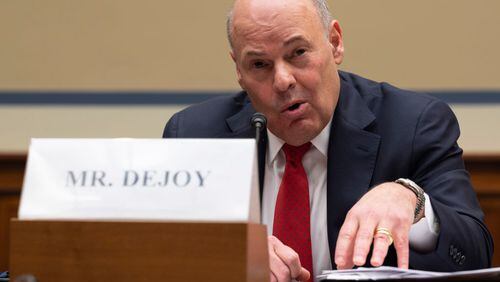When Charles Bullock began teaching political science at the University of Georgia in 1968, America was in the midst of a fractious national campaign that had some wondering if the country would be permanently divided.
Sound familiar?
Bullock has seen startling changes in Georgia and national politics since he started teaching there at the age of 26 and can offer calming perspective on the political “crisis” of the day.
Bullock’s telephone number is on speed dial for many reporters seeking his insight on politics. His students have ranged from former state Rep. Stephanie Stuckey Benfield, a Democrat, to Paul Bennecke, executive director of the Republican Governors Association.
The university celebrated Bullock's 50th anniversary teaching on Friday in Atlanta. The Atlanta Journal-Constitution interviewed Bullock about his 50 years at UGA. Here are some excerpts:
Q: Did you ever imagine teaching 50 years?
A: No. When you’re 26 years old, you don’t think about doing anything for 50 years.
Q: How has teaching changed since you started?
A: Students have gotten better. I chalk up a lot of it to (the HOPE Scholarship). I guess it's the way (former Gov. Zell Miller, who led the effort to create the scholarship) wanted it to work, to keep more good students in Georgia. They are more attentive. They ask better questions.
Q: Are students more skeptical now?
A: They probably are. They are more informed ... Sometimes I’m in the midst of a class and I’ll talk about something and try to remember when it happened and someone will go online and get the answer. They have so much more information at their fingertips.
Q: What have been the biggest changes you’ve seen?
A: One thing that’s changed is when I started here, this was strictly a Democratic state ... One of the few hotbeds of Republicanism was south DeKalb County.
Q: What’s disturbed you the most?
A: Nationally, the bitterness. The size of the chasm between the two parties ... It makes it more difficult to accomplish things.
Q: What’s surprised you the most?
A: If you said 35 years ago you would be living in a red state, I didn’t see that coming. Ideologically, a lot of those Democrats were conservative, though ... In national politics, if you said there would be a black president, I would have said ‘whoa, really?’
Q: How long do you plan to continue teaching?
A: I enjoy it. It’s become such a big part of my life ... I get anonymous evaluations yearly, so unless the students say it’s time to go, I’ll continue to do it.







